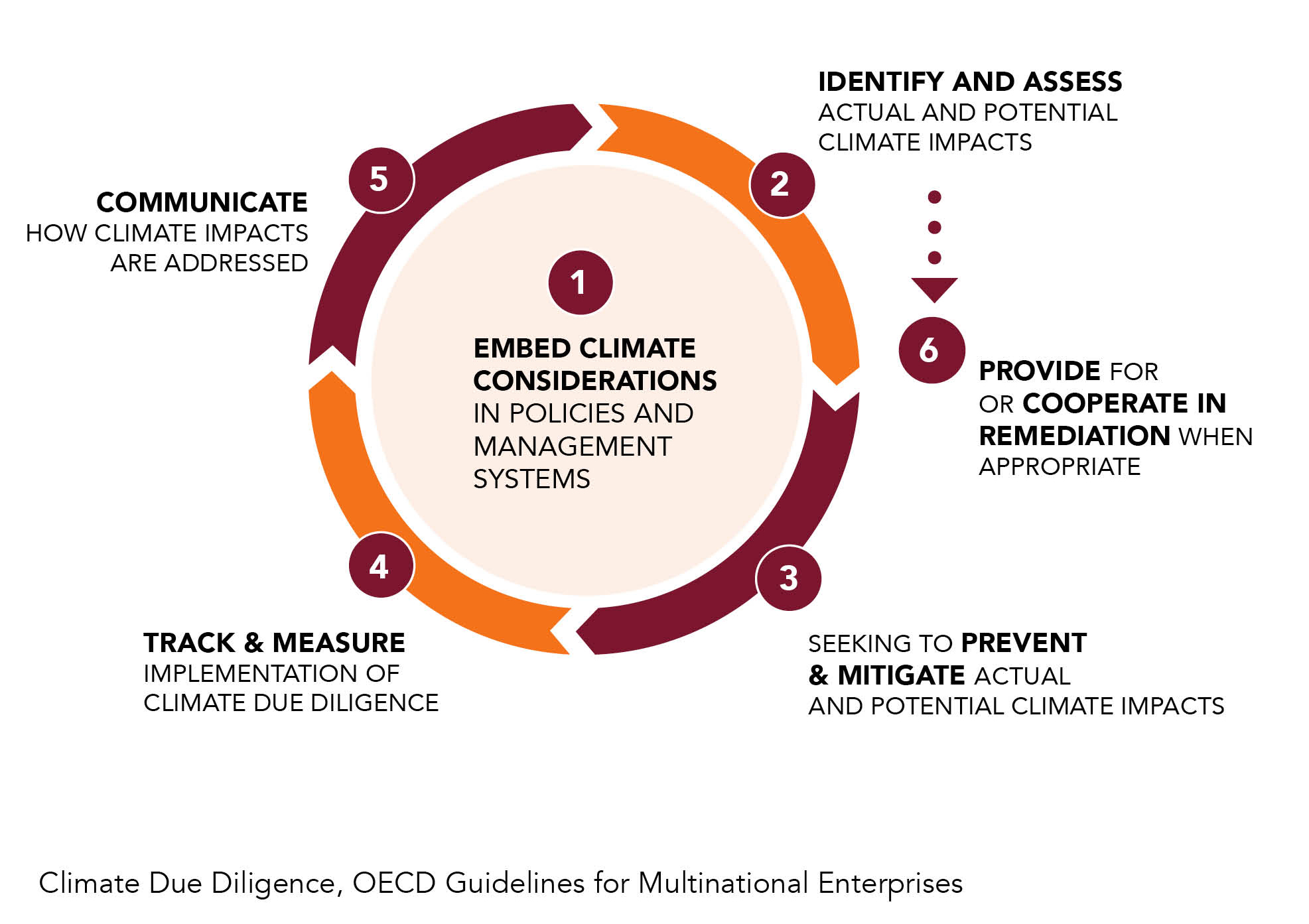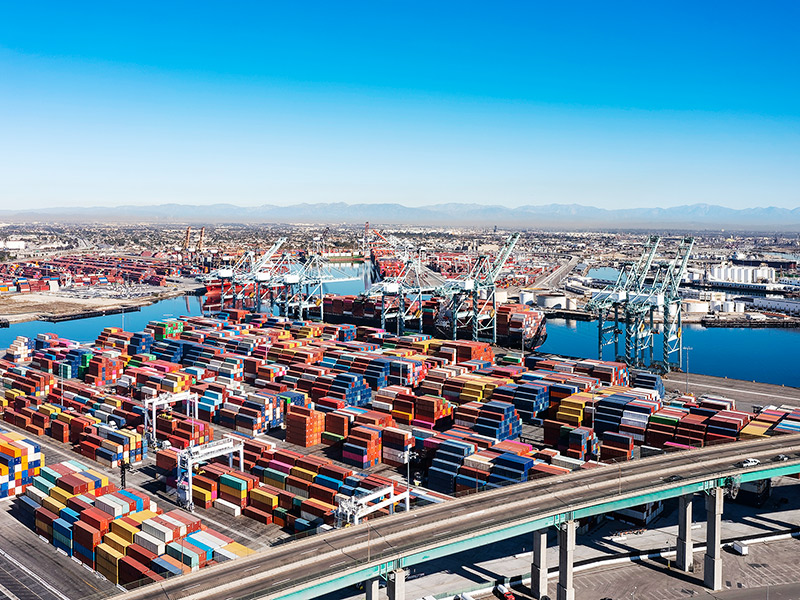
The EU Corporate Sustainability Due Diligence Directive (CSDDD)’s Climate Transition Plan (CTP) requirement has three major implications for climate action:
- Delivering climate transition plans, including science-based targets covering Scope 1, 2, and 3 across the full value chain, are now a legal obligation.
- Climate transition plans are evolving from being seen merely as a reporting tool to a key strategic approach. The CSDDD requires companies to determine whether their business model and strategy are compatible with the 1.5°C goal of the Paris Agreement—taking corrective action if they are not.
- Climate transition plans should be grounded in respect for human rights to ensure climate actions are sustainable, just, and equitable. By requiring companies to conduct human rights due diligence on their negative impacts, CSDDD brings the just transition in scope—with potential litigation risks for non-compliance.
Climate Week NYC is upon us. Sustainability professionals are gathering in New York City for arguably the most important milestone in the climate agenda this year. With the climate crisis dangerously nearing tipping points, and this year marking halfway through the “decisive decade,” the CSDDD offers an opportunity to advance transformational climate action centered on just transition principles.
After years of negotiation, the EU’s CSDDD entered into force in July 2024. Arguably the EU’s most ambitious sustainability measure, companies in scope must adopt and implement Climate Transition Plans (CTPs) and conduct due diligence to assess and manage their negative human rights and environmental impacts.
Regulating Climate Action for Business
While governments have advanced a range of climate-related regulations, these measures have focused on disclosure, not action. CSDDD makes delivering the Paris Agreement a regulated affair for business—and that’s a big deal.
According to the CSDDD, companies must “adopt and put into effect a climate mitigation transition plan that aims to ensure, through best efforts, that their business model and strategy are compatible with the transition to a sustainable economy and with the limiting of global warming to 1.5 °C in line with the Paris Agreement.” This includes time-bound targets for 2030 and five-year steps up to 2050, including absolute targets for scopes 1, 2, and 3 (covering full value chain, unlike CSDDD’s other due diligence requirements).
CSDDD establishes CTPs as a strategy tool. It makes clear that reaching Paris Agreement goals requires companies to transform their business models, which includes addressing tensions between their growth and sustainability.
Advancing Climate Due Diligence
The CSDDD is grounded in global due diligence standards. The OECD Guidelines expect companies to conduct climate due diligence to assess and manage the adverse climate impacts they generate and to conduct human rights and environmental due diligence to address the negative impacts of their operations and value chains, including their climate activities, on people and nature.

Voluntary frameworks on climate action have long directed companies to align with steps of climate due diligence, such as identifying, mitigating, and communicating climate impacts. For instance, companies following Greenhouse Gas (GHG) Protocol, Science Based Targets Initiative (SBTi), Task Force on Climate-Related Financial Disclosures (TCFD) governance-related guidance, Carbon Disclosure Project (CDP) disclosure expectations, or frameworks such as Transition Plan Taskforce, are ahead on their CSDDD CTP-related compliance journey.
While CSDDD doesn’t require companies to assess their impacts on climate, companies must know their emissions to adopt and implement credible, CSDDD-aligned CTPs.
CSDDD is Closing the Just Transition Gap
Climate action is urgent, but it must be just and inclusive. Few climate transition frameworks (e.g., Glasgow Financial Alliance for Net Zero, or GFANZ, UK’s Transition Plan Taskforce) ask companies to assess the impacts of climate action on people—and none ask companies to address them. This perpetuates siloes between climate and human rights teams within companies.
At first glance, the CSDDD’s CTP requirements reflect a siloed approach. There is no explicit requirement to consider the actual or potential negative impacts of climate mitigation on people. CSDDD also doesn’t explicitly require companies to focus on adaptation—which is a miss. Yet by requiring companies to conduct human rights due diligence on the negative impacts of their operations, supply chains, and limited downstream partners, the just transition is in scope.
Respecting human rights in climate action involves committing to respect human rights in the transition out of fossil fuels and into a green economy. Companies must expand human rights due diligence to cover CTP measures, such as decommissioning mining sites, switching to renewables, and protecting carbon sinks, and enable remedy when harms occur.
Engagement of affected stakeholders, such as workers, trade unions, communities, and Indigenous Peoples, is required. This may take the form of tripartite dialogue with trade unions and government or engaging in good faith processes of free, prior, and informed consent. At all times, companies must provide comprehensive information about climate mitigation plans and activities that may affect people’s lives and ensure ongoing consultation while reducing engagement barriers and ensuring people are free from retaliation.
Companies that fail to comply with CSDDD’s due diligence requirements may be held civilly liable for any resulting damages to people. This comes amidst the rise of just transition litigation—affecting companies that extract and produce materials critical for the transition, as well as wind energy, hydropower, and solar projects—a trend that is certain to continue.
CSDDD Preparation: Putting Just Transition at the Heart of Climate Action
Few companies have conducted human rights due diligence of CTPs despite growing attention to just transition in GFANZ, the Transition Plan Taskforce (TPT), and the Corporate Sustainability Reporting Directive (CSRD). The following recommendations support an ambitious approach to preparing for CSDDD:
- Assess gaps in CTP mitigation measures and associated climate and human rights due diligence approaches against CSDDD requirements. Review business models to ensure compatibility with Paris Agreement goals and respect for human rights.
- Assess alignment of overall climate strategy with the OECD Guidelines and the UN Guiding Principles to strengthen a holistic approach to human rights and climate change. Ensure the climate approach focuses not only on mitigation, but on adaptation and climate justice.
- Engage and strengthen board and senior leadership capacity. Strong leadership is needed to set the tone and ensure the company leans into the complexities associated with adapting business models, evaluating trade-offs, and ensuring net-zero efforts are grounded in human rights due diligence.
- Build internal expertise and foster cross-functional collaboration between human rights and climate teams, including when conducting due diligence and designing strategies and action plans.
- Develop an affected stakeholder engagement strategy, including stakeholder mapping to identify all groups relevant to each mitigation activity, such as climate-vulnerable stakeholders. Create an engagement timeline that starts earlier than traditional project cycles and design culturally appropriate engagement methods for each group.
- Identify and scrutinize collective action platforms that support climate mitigation efforts. Use leverage within initiatives to promote the inclusion of human rights and just transition approaches in the transition to a Paris-Agreement aligned economy.
BSR will discuss the connection between environmental and human rights due diligence this week at Climate Week NYC.
Interested in advancing your company's Climate and Human Rights Due Diligence Strategies? Contact BSR’s Human Rights and Climate experts to find out more.
Topics
Let’s talk about how BSR can help you to transform your business and achieve your sustainability goals.









